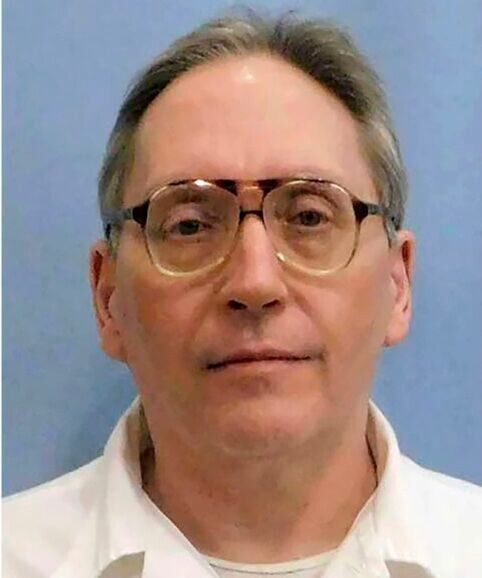Inmate executed in Alabama following pause and review of lethal injections
Published 11:16 am Friday, July 21, 2023

- James Barber was executed July 21, 2023 at the William C. Holman Correctional Facility in Atmore, Alabama.Alabama Department of Corrections
MONTGOMERY— Executions in Alabama have resumed after being held up since November due to a series of botched lethal injections.
James Barber, 64, was executed in the early morning hours July 21 following months of a review and update to the Alabama Department of Corrections’s lethal injection process.
Trending
Alabama Attorney General Steve Marshall said he cleared Barber’s execution to begin at 1:34 a.m.; Barber’s time of death was 1:56 a.m. at the William C. Holman Correctional Facility in Atmore, Ala.
“Justice has been served. This morning, James Barber was put to death for the terrible crime he committed over two decades ago: the especially heinous, atrocious, and cruel murder of Dorothy Epps,” Marshall said.“I ask the people of Alabama to join me in praying for the victim’s family and friends, that they might now be able to find some sense of peace and closure.”
Barber was convicted in the May 20, 2021, murder of Epps at her home in Harvest, Ala., in an attempt to steal her purse.
According to Marshall, Epps knew and had a friendly relationship with Barber, who in the past had dated her daughter and had been hired to do repair work on her house. It is suspected when Barber knocked on Epps’s door, she probably invited him inside, having no reason to suspect his malevolent intent.
After Epps let Barber into her home, Marshall said Barber viciously attacked Epps, a 75-year-old woman who weighed 100 pounds, striking her in the face and then beating her to death with his fists and a claw hammer.
Days later, Barber was arrested and voluntarily confessed to Epps’s murder providing police account of his crimes in a video recording, according to Marshall. He admitted that “the crime was senseless and stupid” and that he deserved “to be charged and put to death” for committing it.
Trending
Barber was the first to be executed since Gov. Kay Ivey issued a pause on executions Nov. 21, 2022, in Alabama after complications during three lethal injections last year, two of which were subsequently halted.
Kenneth Eugene Smith was set to be executed Nov. 17, but after Department of Corrections staff spent an hour trying to set IV lines for the lethal injection drugs, his execution was halted. Similar problems arose in the planned Sept. 22, execution of Alan Eugene Miller that was also unsuccessful. Joe Nathan James Jr.’s execution on July 28 lasted more than three hours before he died.
Department of Corrections Commissioner John Hamm said in a Feb. 24 letter to Ivey that the DOC had completed its “top-to-bottom” review of the state’s execution process as directed by Ivey in November 2022.
He said the review entailed communications with corrections personnel from other states who are involved with executions, and reviews of execution procedures from multiple states “to ensure our process aligns with the best practices in other jurisdictions.”
According to Hamm’s letter to Ivey, the DOC has implemented:
- A new Supreme Court of Alabama rule now allows the governor to set a time frame for an execution to occur. Prior to the new rule, executions would have to completed by midnight on a designated day. Hamm said the new change will make it harder for inmates to “run out the clock” with last-minute appeals and requests for stays of executions.
- The DOC plans to add more medical personnel for executions. According to Hamm, the department vetted outside medical professionals and has received new medical equipment available for executions. Department of corrections are often secret on the background or training of persons performing the executions.
- Hamm said staff has conducted “multiple” rehearsals of the execution process in recent months to ensure staff is well-trained and prepared to perform their duties. Trainings and rehearsal procedures will continue to be updated, he said.
Prior to Barber’s execution, Barber had an application to stay his execution pending before the U.S. Supreme Court, attempting to further delay his execution due to previous failures in the state’s prior incidents. Just hours before he execution, however, the U.S. Supreme Court voted 6-3 to allow his execution to proceed.
”Late last night, SCOTUS voted along partisan lines to permit Alabama to execute James Barber, accepting the state’s word in lieu of actual evidence that it made changes to its protocol and staffing that would address its history of botched executions,” said Robert Durham, death penalty researcher. “… The 8th Amendment demands more than the State’s word that this time will be different.”
Attorneys for Smith fought against a second attempt at Smith’s execution via lethal injection. The U.S. Supreme Court in May sided Smith’s lawyers, agreeing that he can be executed via nitrogen hypoxia, an execution method approved by state lawmakers in 2018. If carried out, Smith would be the first person executed by nitrogen hypoxia in Alabama.





